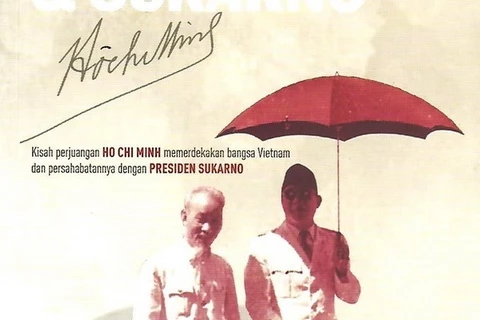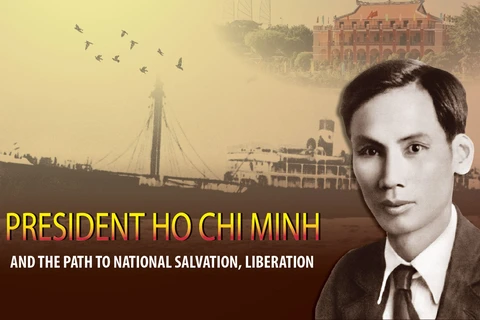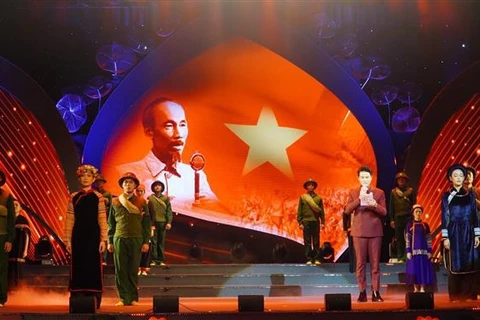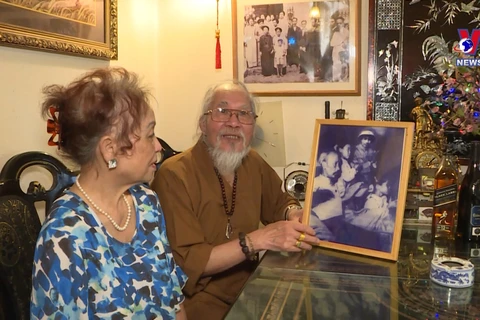 The book "Bac Ho voi cac Tong thong My" (Uncle Ho with US Presidents) by Associate Professor, Dr. Vo Van Loc. (Photo: hanoimoi.com.vn)
The book "Bac Ho voi cac Tong thong My" (Uncle Ho with US Presidents) by Associate Professor, Dr. Vo Van Loc. (Photo: hanoimoi.com.vn) Compiled by Associate Professor, Dr. Vo Van Loc, the eight-chapter book comprises official letters, dispatches and articles, which is divided into two parts.
The first part covers the period between 1919 and 1946, during which President Ho Chi Minh sent letters to three US Presidents - Woodrow Wilson, Franklin D. Roosevelt, and Harry S. Truman. The letters demonstrated the Vietnamese President’s trust, sincerity, patience, reasonableness, and his wish to establish friendly and allied relations with the US.
However, the expectations of Ho Chi Minh and the Government of the Democratic Republic of Vietnam were not realised as the US Presidents failed to get the messages that the Vietnamese leader wanted to deliver.
The second part deals with the period from 1947 to 1969 with four US presidents Dwight D. Eisenhower, John F. Kennedy, Lyndon B. Johnson, and Richard Nixon. During this time, the US went from indirect intervention to directly waging a war infringing on Vietnam’s territorial integrity, right to self-determination, independence, and freedom. In such circumstances, President Ho Chi Minh had to change his attitude. He continued to send letters and telegrams, among other forms, to carry out a flexible but resolute diplomatic struggle to condemn and criticise aggressive actions of the US government. At the same time, he continued expressing the goodwill and efforts of the Vietnamese Government to seek a peaceful solution, ending the war and bloodshed for both peoples.
The book has testified to a fact that President Ho Chi Minh is a genius diplomat, who founded the modern diplomacy of Vietnam./.
VNA
























